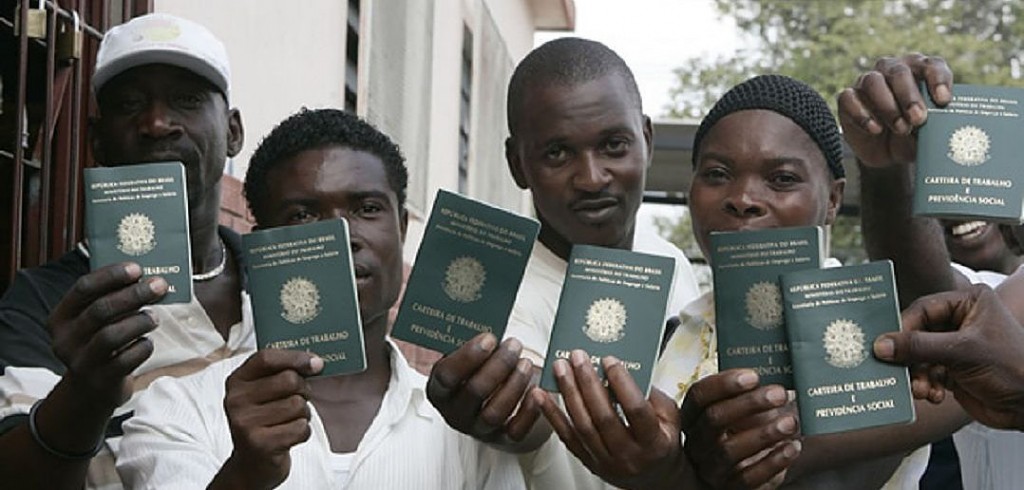
Here’s some news we missed last month. In early November, the Brazilian government announced that they granted permanent residence to 43,781 Haitian immigrants who entered Brazil in the last five years, but could not legally be accepted as refugees.
Under the plan, the undocumented Haitians who entered Brazil will be granted the right to live and work legally in the Brazil.This agreement will allow Haitians who entered Brazil by Peru’s Amazonian state of Acre and Bolivia, to legalize their situation in the country and get the working document required by Brazilian employers.
According to Dreamimtv,
The Brazilian government announced on Wednesday the extension of legal permanent residence to 43,781 Haitian immigrants who have entered the South American nation over the past five years. The Brazilian government announced on Wednesday the extension of legal permanent residence to 43,781 Haitian immigrants who have entered the South American nation over the past five years.
The “joint act of recognition, authorization and concession of permanence” was signed in Brasilia by the ministers of justice, Jose Eduardo Cardozo, and labor, Miguel Rossetto.
Under the plan, the undocumented Haitians who slipped into the Brazilian state of Acre from Peru and Bolivia will be able to remain in the country and seek employment.
“This act establishes a period of up to a year for them to request a foreign resident identification document. Those Haitians are formally accepted by Brazil with stability and security,” Rossetto said.
Cardozo said the Haitians are receiving the same treatment given to foreign nationals who have Brazilian spouses or children. The authorization offers the Haitians “a prospect of definitive permanence so they can reside and enjoy all the rights of a foreigner in Brazil,” the justice minister said. Those rights include eligibility for government assistance, he said.
The Haitians in Acre, who were brought to Brazil by people smugglers, initially applied for refugee status, but as that process dragged on, authorities began to provide them with provisional visas that allowed the migrants to travel to other parts of the country in search of employment.
While none of the Haitians has received refugee status, the number of people accepted by Brazil as refugees has doubled in the past four years, from 4,218 in 2012 to 8,400 over the first seven months of 2015.
















